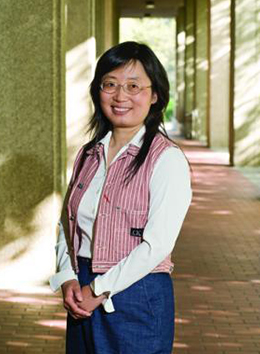Guanglei Hong
Professor, Comparative Human
Development, The University of Chicago
Chair, Committee on Quantitative Methods in Social, Behavioral, and Health Sciences


Guanglei Hong
Professor, Comparative Human
Development, The University of Chicago
Chair, Committee on Quantitative Methods in Social, Behavioral, and Health Sciences
Guanglei Hong obtained a Master’s degree in Applied Statistics and a Ph.D. in Education from the University of Michigan in 2004. She is the Inaugural Chair of the University-wide Committee on Quantitative Methods in Social, Behavioral, and Health Sciences (https://voices.uchicago.edu/qrmeth/) and a member of the Committee on Education (https://voices.uchicago.edu/coed/) at the University of Chicago. Before joining the University of Chicago faculty in July 2009, she had been an Assistant Professor in the Human Development and Applied Psychology Department in the Ontario Institute for Studies in Education of the University of Toronto (OISE/UT).
Prof. Hong has focused her research on developing causal inference theories and methods for evaluating educational and social policies and programs and for assessing the impacts of major contextual changes on child and youth development in multi-level, longitudinal settings. Her current research agenda is centered on causal moderation and mediation methodology. She has contributed original concepts and methods, developed analytic tools, and conducted important application studies that evaluate multivalued treatments, time-varying treatments, and mediation mechanisms in education and beyond. The RMPW method that she proposed in 2010 has drawn increased attention and has been regarded as a unifying framework for causal mediation analysis. Her monograph, “Causality in a social world: Moderation, mediation, and spill-over,” published by Wiley in 2015 has received wide recognitions from colleagues. She guest edited the Journal of Research on Educational Effectiveness special issue on the statistical approaches to studying mediator effects in education research in 2012. Additionally, through publishing in first-tier statistics and education journals and disseminating the new methods through workshops and training sessions, her research has generated a broad impact among applied statisticians as well as applied researchers.

